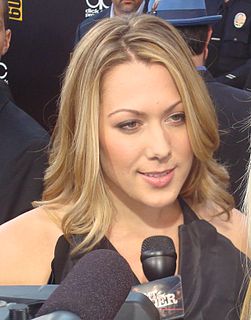A Quote by Mark Leyner
I think as I have gotten older, my feelings about my role in the culture as a writer, and me specifically, has changed, and has become more degraded and marginalized. This may be a more personal and psychological than a sociological insight, but I feel more vulnerable.
Related Quotes
The "female culture" has shifted more rapidly than the "male culture"; the image of the go-get 'em woman has yet to be fully matched by the image of the let's take-care-of-the-kids- together man. More important, over the last thirty years, men's underlying feelings about taking responsibility at home have changed much less than women's feelings have changed about forging some kind of identity at work.
The way that I feel about my Jewish identity has been really radically changed by events in life. Like, becoming a writer is one. Having children is another. And getting older and watching, you know, my parents and grandparents get older has been another, the seasons of - being witness to the seasons of life and wanting to have some kind of infrastructure to deal with it, to cope with them. Ritual has become more important to me as I've gotten older. It's not always religious ritual, but it often borrows from Judaism.
As things have progressed and I've gotten older, I've gotten more and more involved on the producing side. It's been a natural progression. The more you become exposed in a particular medium, the more you can bring to the table and people start trusting you. You're valued a little bit more, so you have more of a voice. It's something I would like to do, through the rest of my career.
You become more and more charged with your life and with a life that you're observing. When I was younger, I was actually looking forward to getting older, to have more insight, more understanding. I'm much more tolerant with others and with myself. I'm not in rebellion all the time, I'm not angry so much. But all those feelings are really useful [when you're young] because they fire us, as long as they don't get out of control.
The great thing about living until you get a bit older if you are a writer, and especially a poet, is that you have more life to reflect on. And I think that if I am better now - and I think that I am probably better than I was - is because that I simply have more to think about, more to get under control, more to understand.
The individual in the ordinary circumstances of living may feel more unreal than real; in a literal sense, more dead than alive; precariously differentiated from the rest of the world, so that his identity and autonomy are always in question.... He may not possess an over-riding sense of personal consistency or cohesiveness. He may feel more insubstantial than substantial, and unable to assume that the stuff he is made of is genuine, good, valuable. And he may feel his self as partially divorced from his body.
The more I find life to be a great design, the more I suspect it to be singular in existence; the more I suspect it to be singular, the more I feel it to be specific and personal; the more I feel it to be personal, the more I think of it to be a mere question; And the more I think of it to be a question, the less I understand the questioner.
The more I think about the human suffering in our world and my desire to offer a healing response, the more I realize how crucial it is not to allow myself to become paralyzed by feelings of helplessness and guilt. More important than ever is to be very faithful to my vocation to do well the few things I am called to do and hold on to the joy and peace they bring me. I must resist the temptation to let the forces of darkness pull me into despair and make me one more of their many victims.



































